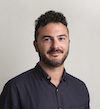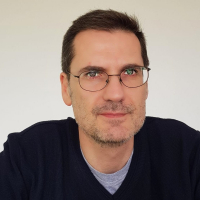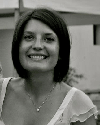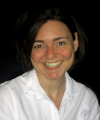Studying at the University of Verona
Here you can find information on the organisational aspects of the Programme, lecture timetables, learning activities and useful contact details for your time at the University, from enrolment to graduation.
Academic calendar
The academic calendar shows the deadlines and scheduled events that are relevant to students, teaching and technical-administrative staff of the University. Public holidays and University closures are also indicated. The academic year normally begins on 1 October each year and ends on 30 September of the following year.
Course calendar
The Academic Calendar sets out the degree programme lecture and exam timetables, as well as the relevant university closure dates..
| Period | From | To |
|---|---|---|
| 1 A | Sep 26, 2022 | Nov 5, 2022 |
| 1 B | Nov 14, 2022 | Dec 22, 2022 |
| 2 A | Feb 13, 2023 | Apr 6, 2023 |
| 2 B | Apr 12, 2023 | May 27, 2023 |
| Session | From | To |
|---|---|---|
| Sessione invernale | Jan 9, 2023 | Feb 11, 2023 |
| Sessione estiva | Jun 5, 2023 | Jul 29, 2023 |
| Sessione autunnale | Aug 28, 2023 | Sep 23, 2023 |
| Session | From | To |
|---|---|---|
| Sessione straordinaria (a.a. 2021/22) | Mar 31, 2023 | Apr 6, 2023 |
| Sessione estiva | Jul 10, 2023 | Jul 15, 2023 |
| Sessione autunnale | Nov 6, 2023 | Nov 11, 2023 |
| Sessione straordinaria | Apr 2, 2024 | Apr 8, 2024 |
| Period | From | To |
|---|---|---|
| Chiusura edifici | Oct 31, 2022 | Oct 31, 2022 |
| Festa di Ognissanti | Nov 1, 2022 | Nov 1, 2022 |
| Festa dell'Immacolata | Dec 8, 2022 | Dec 8, 2022 |
| Chiusura edifici | Dec 9, 2022 | Dec 10, 2022 |
| Vacanze di Natale | Dec 23, 2022 | Jan 7, 2023 |
| Vacanze di Pasqua | Apr 7, 2023 | Apr 10, 2023 |
| Festa della Liberazione | Apr 25, 2023 | Apr 25, 2023 |
| Festa del lavoro | May 1, 2023 | May 1, 2023 |
| Festa del Santo Patrono | May 21, 2023 | May 21, 2023 |
| Festa della Repubblica | Jun 2, 2023 | Jun 2, 2023 |
| Chiusura estiva | Aug 13, 2023 | Aug 19, 2023 |
Exam calendar
Exam dates and rounds are managed by the relevant Culture and Civilisation Teaching and Student Services Unit.
To view all the exam sessions available, please use the Exam dashboard on ESSE3.
If you forgot your login details or have problems logging in, please contact the relevant IT HelpDesk, or check the login details recovery web page.
Should you have any doubts or questions, please check the Enrollment FAQs
Academic staff
 luca.bochicchio@univr.it
luca.bochicchio@univr.it
 piergiovanna.grossi@univr.it
piergiovanna.grossi@univr.it
Study Plan
The Study Plan includes all modules, teaching and learning activities that each student will need to undertake during their time at the University.
Please select your Study Plan based on your enrollment year.
1° Year
| Modules | Credits | TAF | SSD |
|---|
1 module among the following1 module among the following2° Year activated in the A.Y. 2023/2024
| Modules | Credits | TAF | SSD |
|---|
4 modules among the following| Modules | Credits | TAF | SSD |
|---|
1 module among the following1 module among the following| Modules | Credits | TAF | SSD |
|---|
4 modules among the following| Modules | Credits | TAF | SSD |
|---|
Legend | Type of training activity (TTA)
TAF (Type of Educational Activity) All courses and activities are classified into different types of educational activities, indicated by a letter.
History of artistic and material culture in the Middle Ages (2022/2023)
Teaching code
4S010512
Teacher
Coordinator
Credits
6
Also offered in courses:
- History of Medieval Architecture of the course Master’s degree in Historical Studies (interuniversity)
Language
Italian
Scientific Disciplinary Sector (SSD)
L-ART/01 - HISTORY OF MEDIEVAL ART
Period
2 B dal Apr 12, 2023 al May 27, 2023.
Learning objectives
The course in History of Artistic and Material Culture in the Middle Ages (m) aims to prepare students: to acquire complete knowledge of specific material and content aspects of artistic production in the Middle Ages; to have full competence in the most advanced methodological tools relating to art-historical research; to increase the capacity of critical analysis, in order to be able to conduct research independently. At the end of the course, students will be able to: identify, read, understand and autonomously evaluate the characteristics of medieval works of art and artistic movements; recognize the material and iconographic aspects that characterize medieval artistic phenomena; identify local cultural components in works of art, as well as those coming from distant places; investigate and interpret the artistic experiences developed between the 4th and 13th centuries, with a scientific method; understand the ways in which different cultural areas interacted to create a specific artistic phenomenon.
Prerequisites and basic notions
There are no prerequisites for attending the course.
Program
AROUND SAN ZENO: ROMANESQUE IN THE LAND OF VERONA
>Topics
The course focuses on the Romanesque experiences in the Verona area, starting from the beginnings in the 10th century up to the conclusion of the great city building sites in the mid-12th century, including the great monastic complex of San Zeno.
The main subjects discussed in the lectures focus on:
- the evolution of the architectural and plastic language of the Romanesque period in the Verona area;
- the relationship between the city's medieval architecture and sculpture and those of the diocesan territory;
- the identification of cultural exchanges between the Verona area and nearby ones;
- the evaluation of architectural techniques and methodologies used in the Verona area, in relation to the medieval site characteristics;
- the evaluation of the masonry techniques and methodologies used;
- the interpretation of the spaces of the sacred building.
> Bibliography
Course material (syllabus, lectures, bibliography, important communications, etc.) will be adequately treated and publicised on the e-learning/moodle site. All students, attending and non-attending, must therefore register on the university's platform in order to access the course and take the examination.
Bibliographic materials will be made available at:
30 e lode
via Timavo 16
Verona
(045-8007862; 30eoltre@gmail.com).
Bibliography
Didactic methods
The course consists of lectures in the classroom.
Seminar excursions will be scheduled in Verona and outside the city.
Learning assessment procedures
The final assessment of preparation takes the form of verbal examinations.
No distinction is made between attending and non-attending students, who must in any case supplement the syllabus with readings.
The duration of the examination is directly proportional to the student's performance and in any case consists of a minimum of 10 minutes and a maximum of 40 minutes of discussion with the examiner.
Evaluation criteria
The examination covers the topics addressed in the lecture as well as those discussed in the course-specific bibliography.
In addition to the notional knowledge, it will also be evaluated the way of weaving relations between the specific topics of the course, of organizing specific knowledge, of using specific and adequate vocabulary, of comparing episodes with similar chronology and techniques.
Criteria for the composition of the final grade
The evaluation will be expressed in thirtieths.
Exam language
Italiano
Type D and Type F activities
| years | Modules | TAF | Teacher | |
|---|---|---|---|---|
| 2° | Music in History | F |
Vincenzo Borghetti
(Coordinator)
|
|
| 1° 2° | FAI Activities | F |
Edoardo Bianchi
(Coordinator)
|
|
| 1° 2° | Worlds of Fashion: Themes and Actors | F |
Alessandra Zamperini
(Coordinator)
|
|
| years | Modules | TAF | Teacher | |
|---|---|---|---|---|
| 2° | Music in History | F |
Vincenzo Borghetti
(Coordinator)
|
|
| 1° 2° | FAI Activities | F |
Edoardo Bianchi
(Coordinator)
|
|
| 1° 2° | Worlds of Fashion: Themes and Actors | F |
Alessandra Zamperini
(Coordinator)
|
|
| years | Modules | TAF | Teacher | |
|---|---|---|---|---|
| 1° | That scandalous can: Piero Manzoni’s Artist’s Shit (1961). International conference | F |
Luca Bochicchio
(Coordinator)
|
|
| 1° | Sigecweb computer system introduction course | F |
Ada Gabucci
(Coordinator)
|
|
| 1° | Graphic and photographic documentation of the archaeological artefacts: from traditional drawings to digital sources | F |
Diana Sergeeva Dobreva
(Coordinator)
|
|
| 1° | Workshop on the History of Manuscript Illumination | F |
Margherita Zibordi
(Coordinator)
|
|
| 1° | La collezione AGI Verona in Santa Marta e altri sedi universitarie a Verona | F |
Valerio Terraroli
(Coordinator)
|
|
| 1° | Works on display, 2023. Alessandro Turchi known as Orbetto, painter on copper and blackboard: the Madonna and Child with Saints Peter the Martyr, Zeno and Tuscany. | F |
Giorgio Fossaluzza
(Coordinator)
|
|
| 1° | Web for Cultural Heritage | F |
Piergiovanna Grossi
(Coordinator)
|
|
| 1° 2° | FAI Activities | F |
Edoardo Bianchi
(Coordinator)
|
|
| years | Modules | TAF | Teacher | |
|---|---|---|---|---|
| 1° | Sigecweb computer system introduction course | F |
Ada Gabucci
(Coordinator)
|
|
| 1° | Graphic and photographic documentation of the archaeological artefacts: from traditional drawings to digital sources | F |
Diana Sergeeva Dobreva
(Coordinator)
|
|
| 1° | Workshop on the History of Manuscript Illumination | F |
Margherita Zibordi
(Coordinator)
|
|
| 1° | La collezione AGI Verona in Santa Marta e altri sedi universitarie a Verona | F |
Valerio Terraroli
(Coordinator)
|
|
| 1° | Web for Cultural Heritage | F |
Piergiovanna Grossi
(Coordinator)
|
|
| 1° 2° | FAI Activities | F |
Edoardo Bianchi
(Coordinator)
|
|
| years | Modules | TAF | Teacher | |
|---|---|---|---|---|
| 1° | Conference Civici Museum Verona | F |
Tiziana Franco
(Coordinator)
|
|
| 1° | Future's Festival | F |
Alessandra Zangrandi
(Coordinator)
|
|
| 1° 2° | cultural Thursday ISSR Verona | F |
Tiziana Franco
(Coordinator)
|
|
| 1° 2° | The house of Erizzo and the image of aristrocracy in Venice | F |
Alessandra Zamperini
(Coordinator)
|
|
Career prospects
Module/Programme news
News for students
There you will find information, resources and services useful during your time at the University (Student’s exam record, your study plan on ESSE3, Distance Learning courses, university email account, office forms, administrative procedures, etc.). You can log into MyUnivr with your GIA login details: only in this way will you be able to receive notification of all the notices from your teachers and your secretariat via email and soon also via the Univr app.
Double degree
The University of Verona, through a network of agreements with foreign universities, offers international courses that enable students to gain a Double/Joint degree at the time of graduation. Indeed, students enrolled in a Double/Joint degree programme will be able to obtain both the degree of the University of Verona and the degree issued by the Partner University abroad - where they are expected to attend part of the programme -, in the time it normally takes to gain a common Master’s degree. The institutions concerned shall ensure that both degrees are recognised in the two countries.
Places on these programmes are limited, and admissions and any applicable grants are subject to applicants being selected in a specific Call for applications.
The latest Call for applications for Double/Joint Degrees at the University of Verona is available now!
Student login and resources
Prova finale
Alla prova finale per il conseguimento della laurea magistrale in Storia delle arti sono assegnati 24 cfu. La prova finale consiste nella preparazione e nella discussione di una tesi di laurea magistrale, di non meno di 120 pagine scritte, elaborata in modo originale dallo studente sotto la guida di un docente relatore; è prevista la figura del correlatore. L'argomento della prova finale deve riguardare uno degli insegnamenti del piano di studi. I laureati devono saper dimostrare con il lavoro di tesi di aver applicato le loro conoscenze, di possedere capacità di comprensione e abilità nella risoluzione di problemi e nell'affrontare tematiche nuove in modo autonomo e in un contesto di ricerca e di progettazione originale. La discussione della prova finale ha luogo davanti a una Commissione composta secondo le relative norme del Regolamento didattico di Ateneo. Per la prova finale è previsto un massimo di 7 punti. Per l'attribuzione del punteggio la commissione si attiene ai seguenti criteri: 1) originalità dell'elaborato; 2) efficacia e coerenza nelle argomentazioni; 3) qualità della scrittura; 4) capacità dello studente di illustrare e discutere adeguatamente il suo lavoro davanti alla commissione. La votazione è espressa in centodecimi, a cui la Commissione può aggiungere, in casi di eccellenza, la distinzione della lode.
Adempimenti amministrativi e scadenze domanda di laurea
Calendari discussione e proclamazione di laurea

 +39 045802 8351
+39 045802 8351


















